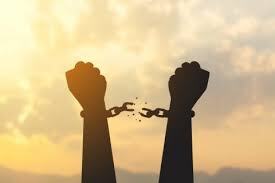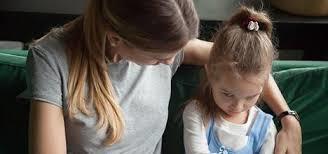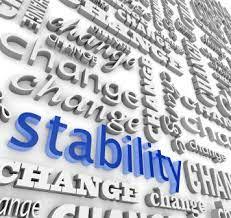Marcia Sirota's Blog, page 11
November 18, 2021
The Dangers of Shutting Down Emotions in the Face of Trauma
I was talking to Dr. Jennifer Fraser, one of my podcast guests the other day (Releasing in the new year), and she mentioned how trauma affects the brain. She said that people can shut down their emotions in order to protect themselves from their pain, but that this defense mechanism has unintended consequences.
There are a few things that can happen when we shut down emotionally. One is that we are so numb that we allow ourselves to be in bad, even dangerous situations. We’re so cut off from our emotions that we don’t realize we’re being hurt and that we shouldn’t be there.
Another thing that happens when we shut down emotionally is that we lose our empathy. If the definition of empathy is “feeling into” another person’s emotional experience, being cut off from our own emotions makes it impossible to have a sense of anyone else’s.
A third thing that can happen when we shut down our emotions is that they can push back from the inside. This can take the form of anger and aggression. A lot of people who are walking around in a rage are actually people who have pushed down their feelings because of trauma, to the point where the only thing they are capable of feeling is rage.
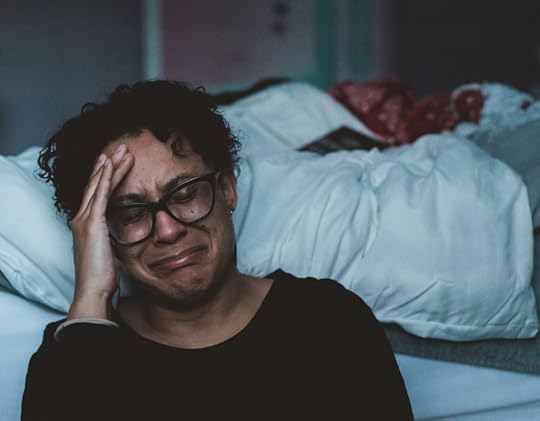 Photographer: Claudia Wolff | Source: UnsplashConsequences to shutting down emotions in the face of trauma:
Photographer: Claudia Wolff | Source: UnsplashConsequences to shutting down emotions in the face of trauma:So, what happens when we push down our emotions? Those who are numb end up being hurt over and over again. If they automatically shut down emotionally after every hurt, they are doomed to a perpetual cycle of numbness, damage, and further numbness.
Those who lack empathy are capable of witnessing all sorts of terrible abuse toward others and feel nothing. Because they aren’t moved by the abuses they see, they have no motivation to do anything to make the situation better. These people are capable of turning a blind eye to abuse and even enabling the abuses that are happening right under their noses.
Another thing to understand about those who are lacking in empathy is that they are extremely threatened by vulnerability. If they encounter a victim of abuse, it scares them because there’s a risk that they might identify with the victim, and possibly start to feel their own buried pain.
This is unacceptable to them, as they are unconsciously driven to suppress their pain. They harbor an unconscious belief that they wouldn’t be able to tolerate their pain. This belief grows stronger the more they suppress their feelings. They are so terrified that the victim of abuse might remind them of their own unacknowledged trauma and pain, that they become angry at the victim for making them feel so uncomfortable.
 Source: Pexels.comEnablers of abuse might have been victims of trauma themselves:
Source: Pexels.comEnablers of abuse might have been victims of trauma themselves:At the same time, the person lacking in empathy will see the abuser as someone to idealize. They would rather identify with the person in the position of power because this makes them feel less vulnerable and less afraid. They admire the abuser for the power they wield and, because they lack empathy, it’s easy for them to focus on who has and doesn’t have the power, rather than who is doing the hurting and who is being hurt.
This results in the unempathetic person abandoning the victim and protecting the abuser. They will enable the abuser to keep abusing because the abuser is admirable in how much power they have. Their lack of empathy makes them disregard how much harm the abuser is causing, and makes them unable to care about the damage being caused to the victim.
The result is that abuse can go on for a long time, and the person lacking empathy will be insistent in ignoring it, enabling it, and in abandoning the victim. This causes even more harm to the victim because they are being victimized twice: once by their abuser and once by the person or persons who are enabling the abuse and ignoring their pain.
 Source: Pexels.comVictims of trauma can become the abusers of the next generation:
Source: Pexels.comVictims of trauma can become the abusers of the next generation:The third type of response to trauma is to be angry and aggressive. These people become the abusers of the next generation. Human beings are drawn to the familiar. If violence or abuse is what’s familiar to these individuals and if rage is all that they can feel, then it stands to reason that they will express their rage through acts of abuse or violence.
These people are so emotionally shut down that they can’t feel any empathy for their victims or any remorse for their hurtful actions. They continue to cause harm because they are operating under the false belief that they will finally feel better if they just take out “enough” rage on their victims.
Unfortunately for the perpetrators—as well as for their victims—this isn’t the way to find peace or healing, and the cycle of violence persists, with the abuser wrongly believing that eventually, enough violence will do the trick and they’ll be healed.
 Source: Pexels.comBeing disconnected from our emotions makes us disconnected from others:
Source: Pexels.comBeing disconnected from our emotions makes us disconnected from others:We should also be aware that the numbness, lack of empathy, and anger that these traumatized individuals are experiencing have had other effects on their lives. These individuals are often incapable of intimacy. Being disconnected from their emotions means being disconnected from others.
Because they have suppressed their emotions, their relationships are shallow, superficial, and oftentimes, they see themselves and/or the other person as a commodity. “Love” is about what they can give and take as opposed to the joy of connection. Their relationships are transactional as opposed to loving and meaningful.
 Source: Pexels.comShutting down emotionally makes it impossible to feel compassion:
Source: Pexels.comShutting down emotionally makes it impossible to feel compassion:These individuals are often incapable of feeling compassion. Emotional repression makes it impossible to care so deeply about others, that they’re compelled to act on their behalf. These individuals are unmoved by the plight of their neighbours, their community, their animals, the environment, and the world. They sit by when terrible things are happening to those around them, or when the planet is in crisis. They don’t have enough emotional capacity to care.
Another consequence of being emotionally shut down is that people don’t care about their own health. They eat junk food because it feels good and because they mistake superficial pleasure for fulfillment. They don’t worry about the health consequences of their bad eating habits because they’re so out of touch with their feelings, they can’t manage to care enough about their health. This results in no changes to their eating behaviours.
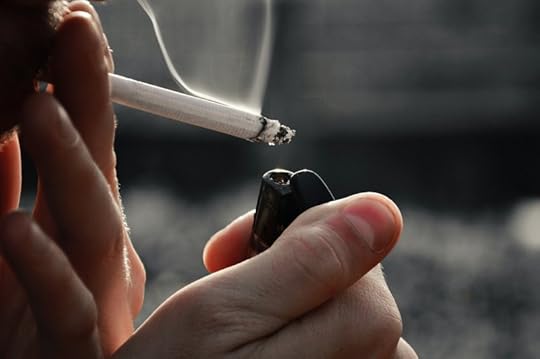 Source: Pexels.comEmotional repression due to trauma leads to self-abandonment:
Source: Pexels.comEmotional repression due to trauma leads to self-abandonment:They consume alcohol and drugs because they need to feel something, even if it’s through intoxication. They engage in self-harming behaviours in order to experience some type of sensation, even if it’s physical pain. For the same reason, they engage in high-risk behaviours to substitute the satisfaction of being in touch with their genuine emotions for the thrill of adventure.
Being out of touch from our emotions is like missing a sense, but these individuals are incapacitated much more than someone who is hearing or visually impaired because there is no other sense to take over when they shut down emotionally. These individuals are left not knowing how to take care of themselves.
In my psychotherapy practice, I have a little mantra that I teach all my patients. It goes: When you’re in touch with your feelings, you’ll know what you need, and when you know what you need, you can take the right action to get it.
 Source: Pexels.comEmotional disconnection due to trauma leads to a lack of inner peace:
Source: Pexels.comEmotional disconnection due to trauma leads to a lack of inner peace:The problem is that when an individual is out of touch with their emotions, they can’t ever know what they need. They think they know what they need, and they pursue all the dysfunctional behaviours I listed above, but that isn’t actually what they need. Because they are so disconnected from their emotions, they can never pursue what they really need and they’re doomed to never find happiness or inner peace.
The answer to this terrible problem is simple, if not easy; people need to tune into their feelings and identify if they have any dysfunctional coping strategies. If so, they need to look at whether they’ve been shutting down their emotions. If they learn that they have, they need to look into their past, to discover whatever trauma they have buried, and start unpacking it in order to heal it directly.
Often, they will need to do this through psychotherapy, because after years of emotional suppression and the consequent numbness, and/or lack of empathy, and/or rage, it can be extremely anxiety-provoking to face their feelings and too terrifying to look at their trauma.
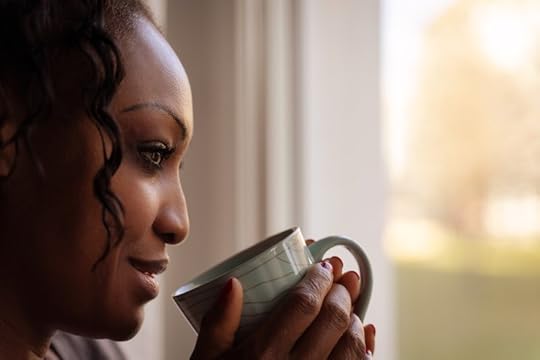 Source: Pexels.comWith courage and willingness, healing from trauma is possible:
Source: Pexels.comWith courage and willingness, healing from trauma is possible:It can be done with some willingness, courage, and the help of caring experienced professionals. Not only can victims of trauma find their own healing, but they can prevent all the collateral damage caused by shutting down emotionally in the face of their own pain.
Sign up here for my free biweekly wellness newsletter that brings you fresh, thought-provoking content.
Subscribe to my YouTube Channel to watch my series Moving into Autumn with Good Self-Care, where you’ll learn simple tips for taking the best care of yourself and your loved ones this fall season.
Tune in to my Ruthless Compassion Podcast where I go in-depth about topics like mental health, trauma, and loneliness.
if(window.strchfSettings === undefined) window.strchfSettings = {};window.strchfSettings.stats = {url: "https://marciasirotamd.storychief.io/... "The Dangers of Shutting Down Emotions in the Face of Trauma",id: "84fb0907-fb13-4676-8158-d29510e9b589"};(function(d, s, id) {var js, sjs = d.getElementsByTagName(s)[0];if (d.getElementById(id)) {window.strchf.update(); return;}js = d.createElement(s); js.id = id;js.src = "https://d37oebn0w9ir6a.cloudfront.net... = true;sjs.parentNode.insertBefore(js, sjs);}(document, 'script', 'storychief-jssdk'))
The post The Dangers of Shutting Down Emotions in the Face of Trauma appeared first on Marcia Sirota.
November 15, 2021
Why We Don’t Need “Resolution” After a Breakup
So often, we crave resolution after a breakup, and then we become frustrated when we can’t achieve it. In my mind, this type of resolution is usually impossible and generally unnecessary.
We seek resolution because we want to be okay after a relationship didn’t go the way we hoped. We feel the need to understand what happened, or to hear the other person apologize for their actions.
The truth is that we don’t need to understand why the other person did what they did. Clarifying their motivations doesn’t change anything for us. More insight in this respect is not helpful at all.
Let’s say we discover that the other person dumped us because they didn’t find us sufficiently attractive or interesting as a partner. We don’t need to hear that. It doesn’t contribute to our emotional well-being.
Let’s say that the other person ghosted us because they found someone else who they liked better. Again, this information isn’t going to contribute to our overall feelings of happiness and inner peace.
 Source: pexels.comPost-break-up, critical feedback could make us feel worse:
Source: pexels.comPost-break-up, critical feedback could make us feel worse:Sometimes, it’s helpful to hear critical feedback in order to improve our relationship behaviours, but sometimes, the only thing the negative comments accomplish is to bring us down.
There are other ways to explore any dysfunctional relationship behaviours we might be exhibiting—such as in therapy—and we don’t always need to make ourselves so vulnerable by allowing the person who left us to go on and on about all the ways they found fault in us.
What we need to understand is that we can be okay when things don’t work out in a relationship. We can’t always understand why people do what they do, but we don’t really need to. And guess what? A lot of the time, the other person doesn’t understand what’s driving their behaviour, either.
Often, the other person wouldn’t be able to explain their actions because their unconscious mind has been driving their relationship choices. Asking them for an explanation would be an exercise in futility.
Some people will incorrectly attribute their behaviour. They might blame us for something we did when really, it was all about them. Or they might explain why they did something and be completely wrong because they’re not in touch with their underlying motivations. That would only serve to confuse us and hurt us more.
 Source: Dreamstime.comApologies are hard to come by and not really helpful:
Source: Dreamstime.comApologies are hard to come by and not really helpful:As for an apology, that won’t heal our wounds. We can wait forever for someone to apologize, and suffer the whole time for no good reason.
Some people refuse to take responsibility for their actions and wouldn’t dream of saying “I’m sorry.” Some are in denial and would never acknowledge to themselves what they did—which would make it impossible for them to admit it to us.
Some people will say that they’re sorry, and then we find that the apology hasn’t helped one bit. That’s because our healing —fortunately—doesn’t depend on whether or not the other person expresses remorse.
We don’t need an apology in order to get closure and heal. We need to do our inner work to get over the hurt and loss of an unsuccessful relationship.
 Source: Pexels.com“Resolution” will not actually make anything better:
Source: Pexels.com“Resolution” will not actually make anything better:We crave resolution because we erroneously assume that this will make things better. In fact, feeling better after a break-up is only achieved by learning—with self-compassion—from our mistakes, forgiving ourselves for where we went wrong, grieving our losses, and comforting ourselves by pursuing (other) positive relationships and activities.
Resolution is rarely available and almost never helpful. Instead of resolution—which depends on the other person giving us something we think we need—we can pursue learning and healing, which we are fully responsible for. We don’t need the other person to do anything in order for us to heal after a relationship ends, and that’s freeing and empowering.
Sign up here for my free biweekly wellness newsletter that brings you fresh, thought-provoking content.
Subscribe to my YouTube Channel to watch my series Moving into Autumn with Good Self-Care, where you’ll learn simple tips for taking the best care of yourself and your loved ones this fall season.
Tune in to my Ruthless Compassion Podcast where I go in-depth about topics like mental health, trauma, and loneliness.
if(window.strchfSettings === undefined) window.strchfSettings = {};window.strchfSettings.stats = {url: "https://marciasirotamd.storychief.io/... "Why We Don’t Need “Resolution” After a Breakup",id: "84fb0907-fb13-4676-8158-d29510e9b589"};(function(d, s, id) {var js, sjs = d.getElementsByTagName(s)[0];if (d.getElementById(id)) {window.strchf.update(); return;}js = d.createElement(s); js.id = id;js.src = "https://d37oebn0w9ir6a.cloudfront.net... = true;sjs.parentNode.insertBefore(js, sjs);}(document, 'script', 'storychief-jssdk'))
The post Why We Don’t Need “Resolution” After a Breakup appeared first on Marcia Sirota.
November 12, 2021
Why Trying to Provoke a Narcissist is a Colossal Waste of Your Time
Recently, I read a blog about how to get back at a narcissist, and it reminded me of how often people have asked me about how to affect a narcissist in some way. I’ve been asked how you might make a narcissist feel jealous, or weak, or frightened; how to hurt them, or how to get them to feel sorry.
All of these questions have a fundamental problem, which is that their purpose is to affect the narcissist. These questions demonstrate that the questioner doesn’t understand the true nature of the narcissist, which is that they don’t care about anyone else and that they’re incapable of being moved by another person’s pain.
If you’ve wondered how you might affect a narcissist who has hurt you, the first thing you should understand is that if you try to make a narcissist scared, weak, jealous, or sorry, you’re likely to have one of two reactions: either they’ll be utterly unmoved, or they’ll get angry at you.
In a case where they’re unmoved, you’ve just wasted your valuable time and energy trying to get a reaction out of someone unable to care about you or to feel any remorse for having hurt you.
Supposing that you anger the narcissist, you’re bringing down a lot of trouble on your head, as people with this type of personality disorder are likely to go to great lengths to punish those who make them mad.
 Source: PexelsNarcissistic Rage:
Source: PexelsNarcissistic Rage:True narcissists cannot tolerate being provoked and they have what’s called narcissistic rage, which is an intense fury, accompanied by the need to punish those who have offended them.
It’s a bad idea to make a narcissist mad. You do not need an individual who is devoid of empathy or remorse to be coming after you with vengeance on their mind.
Another thing to consider is why you are so keen on getting the narcissist to have some type of reaction. If a narcissist has hurt you, trying to get them sad or mad or weakened or frightened or jealous is not the way for you to feel better.
The way to feel better after having been hurt by a narcissist has nothing to do with them and everything to do with you. If you want to heal after having been injured in some way by a narcissist, you will need to do these three things:
 Source: PexelsThe three steps to healing from an injury by a narcissist:
Source: PexelsThe three steps to healing from an injury by a narcissist:1: Get away from the narcissist. Don’t communicate with them. Don’t respond to any communications from them. Cut off all contact completely. If they have hurt you before, they will hurt you again, no matter how much you hope or wish that they’ll change. There is nothing in it for you to maintain any sort of contact with them.
2: Ask yourself how you got caught in the clutches of a narcissist. There’s a lot of learning here for you; especially if you don’t want to repeat your mistakes. Think about your childhood experiences. Was there a narcissistic parent or another important adult when you were growing up who gave you the impression that this type of behaviour was to be expected? If you have a pattern of choosing narcissistic friends, lovers, or bosses, you’ll probably need to work through this pattern in psychotherapy.
3: Do the work of emotional healing. If you’ve been injured by a narcissist, you’ll need to grieve your losses, then comfort yourself with positive (as opposed to dysfunctional) self-soothing. Seek out supportive people to help you feel better, then engage in positive activities to bring you meaning and fulfillment. Finally, let go of your hurt and angry feelings, and move on.
Trying to get a narcissist to see, feel, or do things, is a colossal waste of your time. They aren’t going to respond in a normal way because they’re not like normal people; you risk angering them and gaining an enemy for life.
The best thing to do with a narcissist is to grieve your losses, learn your lessons, and get on with your life. Anything else is not a good choice.
Sign up here for my free biweekly wellness newsletter that brings you fresh, thought-provoking content.
Subscribe to my YouTube Channel to watch my series Moving into Autumn with Good Self-Care, where you’ll learn simple tips for taking the best care of yourself and your loved ones this fall season.
Tune in to my Ruthless Compassion Podcast where I go in-depth about topics like mental health, trauma, and loneliness.
if(window.strchfSettings === undefined) window.strchfSettings = {};window.strchfSettings.stats = {url: "https://marciasirotamd.storychief.io/... "Why Trying to Provoke a Narcissist is a Colossal Waste of Your Time",id: "84fb0907-fb13-4676-8158-d29510e9b589"};(function(d, s, id) {var js, sjs = d.getElementsByTagName(s)[0];if (d.getElementById(id)) {window.strchf.update(); return;}js = d.createElement(s); js.id = id;js.src = "https://d37oebn0w9ir6a.cloudfront.net... = true;sjs.parentNode.insertBefore(js, sjs);}(document, 'script', 'storychief-jssdk'))
The post Why Trying to Provoke a Narcissist is a Colossal Waste of Your Time appeared first on Marcia Sirota.
November 1, 2021
The Many Different Ways that Trauma Can Affect Our Lives
Trauma is the emotional effect of terrible things that have happened to us. We can experience trauma at any time of life, but it has the most damaging effect on us when it happens early-on.
While we’re growing up, the things that happen to us have a direct impact on the way our brain develops. As a result, trauma isn’t just hurtful in the moment—it also affects our self-image, how we experience other people, our worldview, and our life choices.
We can’t underestimate the impact of trauma. It has profound and far-reaching implications, causing pain and suffering for decades after the initial event(s).
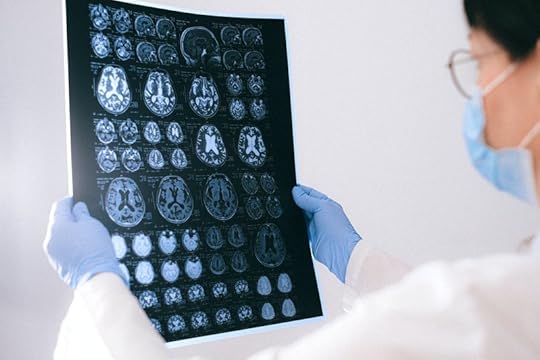 The brain changes in response to trauma:
The brain changes in response to trauma:I want to talk about four ways that people respond to childhood trauma. I want to say a few words about how the brain reacts to strongly negative early-life experiences.
As kids, we’re more sensitive to hurts. We haven’t built up emotional callouses and we haven’t developed the resilience that arises from the perspective gained through life experience. When bad things happen to us early in life, they hurt us that much more. Our natural self-protective response is to emotionally shut down in order to avoid any feelings of intense pain.
When we’re little, we have a natural sense of narcissism; we see the world as a reflection of ourselves. The things that happen to us appear to be related to who we are and what we’ve done. If we experience abandonment, rejection, exploitation, or abuse, we believe that we must “deserve” it – we must be “bad,” somehow. Our natural response to is to blame ourselves for everything bad that happens to us.
This combination of pain from the hurts and losses we’ve experienced and from narcissistic self-blame and self-criticism, leads to the development of coping mechanisms to avoid the pain and the negative self-talk.
We have many coping strategies to choose from and a lot of us use more than one; we can try to numb the pain through compulsive, addictive behaviours; avoid our feelings by getting caught up in work, parenting, or other activities; deny that anything bad ever happened and just “tough it out.”
Some of us blame the world for hurting them and walk around in a perpetual state of resentful, and defensive victimhood, lashing out at others. Some of us implode our anger by taking it out on ourselves. All of the above are ways that we adapt to the trauma we experienced. Unfortunately, the adaptive strategies of childhood become maladaptive behaviours as we grow up.
Here are four specific ways that we respond to childhood trauma. I’ve seen them very often in my psychotherapy practice through the years.
 Photographer: Mark König | Source: UnsplashTrauma Leads to Rescuing:
Photographer: Mark König | Source: UnsplashTrauma Leads to Rescuing:1. Rescuing others: People who’ve been hurt as children can have tremendous empathy for others in a similar position. From my experience, I’ve noticed a large number of social workers, group home workers, psychotherapists, and child protection workers who have chosen their field of work because of their own early-life trauma.
There was no one to rescue them when they were little, even though this was their greatest wish, so they become that person for today’s victims of abuse, neglect, abandonment, and/or exploitation. They’re unconsciously trying to rescue their own wounded inner child at the same time as they’re rescuing their clients.
It’s not only caring professionals who engage in rescuing. Rescuers can be people whose friends and romantic partners are constantly in crisis and who are always bailing out these individuals from their latest disaster. They can be parents who overprotect their children and rescue them from the tiniest disappointments or difficulties.
Unfortunately, being in a rescuer role has consequences: those in the helping professions are constantly getting triggered and re-traumatized by the things they see and they don’t heal their own emotional wounds because they’re constantly preoccupied with saving everyone else. They get burnt out and exhausted and often end up becoming emotionally and/or physically ill.
 Trauma Leads to People-pleasing:
Trauma Leads to People-pleasing:2. People-pleasing: These individuals so deeply crave love, approval, and positive attention that they’re unfailingly nice and rarely if ever say “no.” They always go along with what the other person wants and they do too much for everyone, often neglecting their own needs.
They never express their own anger or displeasure for fear of being rejected. They never share their true thoughts or feelings, for fear of being judged or shamed. Ultimately, they’re manipulators, using other people for their affection and approval rather than liking people for who they are.
These individuals never get what they want. Spending their lives focusing on pleasing others means that they never get to deal with their own inner needs. Since they aren’t being authentic, any positive regard from others can’t be enjoyed because they know that no-one sees them for who they really are.
They live their lives pretending to be someone they’re not. They never set limits, and as a result, become exhausted, frustrated, even resentful. Sometimes, they can’t help but leak their anger, which results in the things they fear the most – disapproval and rejection.
 Photographer: Pretty Drugthings | Source: UnsplashTrauma Leads to Self-destructiveness:
Photographer: Pretty Drugthings | Source: UnsplashTrauma Leads to Self-destructiveness:3. Self-destructive behaviour: In their attempts to not feel their pain, these individuals can engage in a myriad of self-soothing, self-numbing, and self-distracting behaviours. These behaviours can turn into addictions of all sorts, including over-working, misusing alcohol, injecting heroin, binge eating, bulimia or anorexia, gambling, over-spending, video gaming, over-exercising, viewing porn, or picking at their skin.
The need to numb their pain can have a significant side-effects. Feeling dead inside can create a need for intense sensations in order to feel alive. This need for intensity to counteract the awfulness of being constantly numb can give rise to self-harming behaviours, promiscuity, and extreme risk-taking behaviour—all of which have potentially lethal consequences.
 Trauma Leads to Abusiveness:
Trauma Leads to Abusiveness:4. Being hurtful to others: Some traumatized individuals are so full of resentment and rage that they feel compelled to be harmful others. These people can become an abusive parent; partner; boss; teacher; coach; politician, or police officer.
These individuals take out their angry feelings on others. Because of their positions of power and authority, they often get away with it. Sadly, their behaviour is a lose-lose proposition. They cause tremendous harm to others but don’t benefit at all from creating so much pain.
The abusive individual can’t heal their emotional wounds by hurting others. It doesn’t work that way. No matter how many people they harm and how much hurt they cause, it doesn’t take away even one iota of their pain. They stay angry, frustrated, and continue to harm others in the mistaken belief that eventually, if they cause enough harm, they’ll feel better. The truth is, they won’t. This type of reaction to trauma does no good at all.
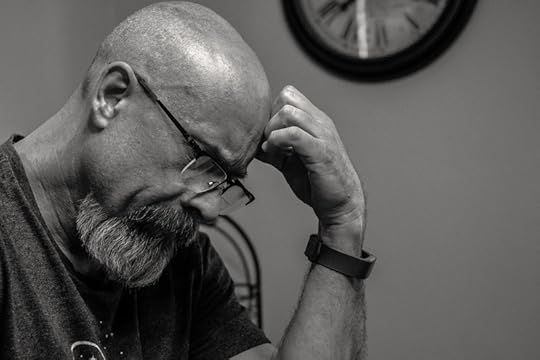 We need to acknowledge the impact of trauma on our lives:
We need to acknowledge the impact of trauma on our lives:Trauma has been shown to negatively affect people’s lives, emotions, attitudes, choices, and behaviours. We all need to acknowledge the impact of trauma. If you recognize any of the above behaviours in yourself, it’s important to seek out the help you need so that you can finally heal and start living the satisfying, meaningful and peaceful life you deserve to live right now.
Subscribe to my YouTube Channel to watch my series Moving into Autumn with Good Self-Care, where you’ll learn simple tips for taking the best care of yourself and your loved ones this winter season.
Tune in to my Ruthless Compassion Podcast where I go in-depth about topics like mental health, trauma, and loneliness.
if(window.strchfSettings === undefined) window.strchfSettings = {};window.strchfSettings.stats = {url: "https://marciasirotamd.storychief.io/... "The Many Different Ways that Trauma Can Affect Our Lives",id: "84fb0907-fb13-4676-8158-d29510e9b589"};(function(d, s, id) {var js, sjs = d.getElementsByTagName(s)[0];if (d.getElementById(id)) {window.strchf.update(); return;}js = d.createElement(s); js.id = id;js.src = "https://d37oebn0w9ir6a.cloudfront.net... = true;sjs.parentNode.insertBefore(js, sjs);}(document, 'script', 'storychief-jssdk'))
The post The Many Different Ways that Trauma Can Affect Our Lives appeared first on Marcia Sirota.
October 9, 2021
Winter is Coming, But You Don’t Have to be a Slave to Your Food Cravings
 You don’t need to snack:
You don’t need to snack:A colleague of mine asked me a question the other day. Given that winter is approaching and he anticipated gaining some weight over the colder months, he wanted my advice for losing ten pounds. I gave him a few suggestions and then he asked another question: “What do I do for snacks?”
I said, “you don’t have to snack.” That was a shocker to him and it led to his next question: “But what do I do about my cravings?” I told him, “You don’t have to have cravings.” That blew his mind.
He had always believed that his food cravings were inevitable and uncontrollable. He was convinced that he was always going to have them and he’d always have to give in to them. I told him that none of this was true. He wanted to know more, so here’s what I said:
Food cravings are psychological, not physical. They’re not the same as hunger, which is a physiological signal that we’re in need of more fuel. Food cravings have nothing to do with our state of nourishment.
The mind is more powerful than any craving:Cravings can feel very powerful – too powerful to resist – but the truth is that our mind is more powerful than any craving we might have.
In fact, cravings – for food, alcohol, drugs, or anything, really – arise in response to unconscious material in our psyche. Our mind is saying, “I want potato chips” but that’s not what we really want.
The psyche is always trying to protect us from unpleasantness. Unfortunately, the way it goes about it often does us more harm than good. Cravings have a purpose: to keep us unaware of the feelings and needs that are coming to the surface from deep within.
It can be upsetting to recognize our real feelings and needs. Giving in to our cravings serves to soothe our discomfort, numb our pain, distract us from our fears, stimulate us when we’re bored or comfort us when we feel lonely.
The psyche doesn’t realize that it’s ultimately healthier for us to face our feelings and deal with our needs than to avoid them by indulging in our cravings.
There are consequences to giving in to our cravings:Once we’ve satisfied our cravings, the feelings and needs get buried again and we have no idea of what’s going on inside of us. Unfortunately, this creates a few problems: There are consequences to all the indulging. We can become overweight and unhealthy, eating all the food we crave.
There’s also a consequence to ignoring the needs and feelings festering inside us. We can become emotionally, or even physically ill from suppressing this unconscious content, and even if we don’t, we’re depriving ourselves of what we truly desire. That’s a tragedy.
Cravings are a signal that we have buried emotions and emotional needs but we experience them as a desire for something physical. If we understand this, we can see that every time we have a food craving, it’s a sign that we need to pay attention to our inner world.
There are a three main reasons why people are uncomfortable facing their unconscious material:
1. Our society encourages us to ignore it and to engage in consumption to “feel better.” We’re constantly encouraged to spend more, eat more, gamble more and accumulate more, as though this is the solution to our deepest needs.
2. Some people have had childhood trauma. The feelings they experienced while growing up were overwhelming. The psyche buried them out of a fear that they’d be intolerable to re-experience. Cravings arose to keep these frightening emotions at bay.
3. Some people grew up with adults who modeled to them that they should ignore their deeper feelings and emotional needs. It just wasn’t done in their family, and in fact, the grown-ups indulged their own food cravings, showing the children that this is what to do, instead.
What we need to know is that we don’t have to blindly follow the customs of our society or the modeling of our families. We also need to understand that as adults, we’re strong enough to face any emotion that might be buried within us from our past experiences.
Cravings can take over our lives:There’s a third problem that arises when we give in to our cravings. They start to control our lives. We end up spending an awful lot of time and money indulging our cravings. They can start to take over our days. The reason for this is partly psychological and partly physiological.
Psychologically, the more we indulge in our cravings, the more we reinforce that this is the way to deal with our emotional content. The more we indulge in our cravings, the more alienated we become from our true needs and feelings, so even if we wanted to look at them, they would be so deeply buried we’d have great difficulty discovering them.
Physiologically, indulging in any type of cravings causes a release of Dopamine in the brain. This gives us an immediate rush of pleasurable sensation, followed by an intense craving for more. But, the more we indulge, the more we crave. This is the physical basis for all addiction.
My colleague, having spent years giving in to his cravings, is naturally finding them very powerful, these days. The good news is that there’s a simple physical way to eliminate food cravings. You just stop giving into them.
Initially, you have to bring a lot of will-power to this, resisting the cravings and refusing to give in. very soon, the cravings will begin to diminish, and eventually, they’ll go away. For anyone who has gone on a diet, they will have already gone through something like this.
The thing that ruins a diet isn’t the persistence of the food cravings. It’s the psychological part, which is a lot trickier. People give up on their diets because all the real feelings and needs start to surface when they’re not indulging in their food cravings, and the discomfort with dealing with this emotional content makes them turn back to food to shove it all down again.
So, a big part of overcoming food cravings is being able to face whatever is inside you. If it’s so scary that you simply can’t do it on your own, you’ll probably need to talk to a professional who can create a safe space in which to do the work of exploring your unconscious content.
One thing that you should know is that as long as you keep indulging your cravings, it will be difficult to know what you really need because fulfilling the cravings keeps everything buried.
Three steps to overcoming cravings for food (or anything else):Overcoming food cravings has to be done in three steps.
1.First, you’ll need to stop the cycle of craving, indulging, and craving more. That comes from exercising your will-power and just saying, “No.”
2. Then, you’ll need to face whatever is in your unconscious, clamoring to be seen. You can do that on your own, or with the help of a qualified professional.
3. The third step is giving yourself what you really need. This might be love, emotional healing, creative fulfillment, more meaning in your life, or a combination thereof. Whatever it is that you need, the cravings won’t go away if the needs aren’t met. Taking time to tune in to those needs will enable you to know them and to start fulfilling them.
It’s not inevitable to have cravings:It’s not inevitable for you to have food cravings – or cravings for anything else, for that matter. It’s not inevitable that you’ll be a slave to your cravings. You can be free of cravings by following the above three steps. And the good news is that the will-power only has to be exerted until you’ve broken the physiological cycle of the Dopamine pathway in your brain – usually a matter of a couple of months.
Freedom from cravings does not have to be a life-long struggle. If you add steps two and three to the will-power of step one, you can live a life completely free of cravings. You can live your very best life.
_____
Sign up for my free biweekly wellness newsletter here for my series on Moving into Autumn with Good Self-Care, where you’ll learn simple tips for taking the best care of yourself and your loved ones this winter season.
And tune in to my ongoing YouTube video series on Coping With Covid.
October 1, 2021
The Fourth Wave is an Opportunity for Parents to Teach Their Kids Resilience
As the fourth wave of the pandemic descends this autumn on parts of Canada and the United States, parents of young children are left not knowing how to deal with their increasingly frustrated younger kids. What are they supposed to tell their six-year-olds and ten-year-olds who won’t be going to schoolmate’s birthday parties or attending family gatherings over the holidays?
How are parents supposed to deal with younger kids who are upset that they can’t play team sports or do their beloved extra-curricular activities? They want to keep their children safe but they hate seeing the disappointment in their little ones’ eyes.
I have two suggestions for what parents can do. They need to focus on both the practical and on the psychological. Let’s start with the practical.
Parents can do their best to create positive experiences for their young children. They can make birthday parties within their family unit or have online parties where everyone connects from the safety of their own home. Parents can take their children out on walks to see the fall foliage or they can go on bike rides in the park.
Parents can do arts and crafts projects with their young children, focusing on different fall themes. If they live in houses, they can get the kids to help rake up the leaves and then have fun jumping into the raked-up piles of leaves. For apartment-dwellers, parents can take their kids to a nearby green space and collect the prettiest leaves to take home and press in a book.
Honesty is good for children’s mental health:Now let’s talk about the psychological piece. These are difficult times. There’s no denying that. Parents need to know that there’s nothing wrong with being honest with their kids and telling them the truth. Honest discussions about what’s going on is beneficial to children’s mental health.
But parents can also reassure their children that like all difficult times, this challenging period will eventually pass. They can tell their children that good times are coming—they just have to be patient, and soon, better times will arrive.
We’ve lived in unusually peaceful and prosperous times for many decades. Not that long ago, World War II brought hardship and even devastation to many people around the world. In the post-war era, we’ve begun to assume that there would be no more bad times. That was a bit of magical thinking.
This period in our lives is an opportunity to teach our children that life has good times and bad times, whether personally or globally. Children need to learn that sometimes, things will be fun and easy, and other times, they’ll be difficult and not so fun. Kids need to learn to tolerate the difficult times and understand that as tough as they might be, they won’t last forever.
Kids can learn how to make lemons into lemonade:As the fourth wave arrives, parents have a unique opportunity to show their children how to be resilient in the face of hardship; how to make lemonade out of lemons. One of the best ways to be resilient is to gain perspective. Understanding that one’s own situation is not as bad as someone else’s is a great way to do that.
Parents can have their young kids participate in food drives or be involved in other ways to help those who are even harder hit by the pandemic. When children help those who are struggling even more than they are, they feel more empowered and they understand that they have some things to be grateful for.
In an era when many parents want to protect their children from any and every type of adversity, the pandemic is an opportunity to demonstrate to children that adversity is a natural part of life and something to be faced with courage, positivity, and fortitude.
Parents can help their young ones develop the “grit” that will benefit them in their adult lives. They can show their kids that disappointment and frustration are as much a part of normal life as are fun and ease. Parents can help their children develop the confidence within themselves that they can get through difficult times with their sense of humour and their optimism intact.
Overprotecting your kids isn’t helping them:Life can be hard sometimes, and the pandemic–especially the fourth wave—shows us this, up close and personal. There can be loss, heartbreak, disappointment, and frustration. It’s natural for parents to want to shield their kids from hurt, but too much shielding can result in kids who won’t be capable of tolerating any difficulties as adults.
Every adult needs to know how to weather a storm and cope with loss, failure, disappointment, and hurt. Every time we get through a challenge, it strengthens us and prepares us for the next challenge, around the bend.
Resilience is being able to see the opportunities for learning and growth in every difficulty, and parents can do this now, even with their younger children.
Of course, no one should be scaring their kids unnecessarily, and younger ones only need to know the details that are relevant to their stage of development and to their particular personality, but understanding the truth about the pandemic is not too much for kids today. They are smart and strong and we need to give them credit for their capacity to tolerate tough truths and tough times.
When we believe in our kids, they end up believing in themselves and in their own ability to handle whatever challenges life throws at them. We can’t control what is happening to us but we can choose to use the difficulties we face in the most positive way, possible.
_____
Sign up for my free biweekly wellness newsletter here for my series on Moving into Autumn with Good Self-Care, where you’ll learn simple tips for taking the best care of yourself and your loved ones this winter season.
And tune in to my ongoing YouTube video series on Coping With Covid.
September 19, 2021
The Dirty Truth at the Heart of the Bachelor Franchise
These days, it looks like most everyone who goes on a reality TV show is looking for more clout, which will then transfer to online sponsorships and dollars.
The good news is that most of these reality show contestants are still choosing to go on their shows and play by the rules before turning their new-found celebrity into cash.
The producers of these shows are responsible for casting the contestants and for making sure that those coming on the shows are there for the right reasons.
If the producers aren’t doing their job, people can slip onto the show with an overt agenda of seeking fame and fortune. It seems like lately, the Bachelor’s producers in particular have been prioritizing their own ratings and profits over the welfare of their contestants.
Much like good parents are supposed to protect their children and keep them from hurting one-another, the Bachelor’s producers are supposed to keep their contestants from indulging in bad behaviours that could cause themselves and the other kids harm.
By allowing contestants on the show who are there for the clout alone, the producers are allowing those who are there for the right reasons to get hurt, and also, they’re allowing the less sincere contestants to commit possible career suicide, by giving them a platform upon which to demonstrate the worst side of themselves.
The Bachelor franchise has become specifically problematic due to the increasing number of contestants who appear to be blatantly seeking fame and fortune, with the most recent season of Bachelor in Paradise being a case in point.
Thomas shows off all the wrong moves:Thomas Jacobs was a recent contestant on Katie Thurston’s season of the Bachelorette. He was sent home prior to a rose ceremony after Katie learned from the other guys that Thomas had admitted he’d come on the show in the hopes of becoming the next Bachelor.
The overt reason for becoming a contestant on one of the Bachelor franchises is to find love, but given the exceedingly low odds of doing so on the main shows, it’s understandable that a number of contestants would have, at least at the back of their mind, the idea of parlaying their fame into lucrative sponsorship deals.
But Thomas was much too calculating and deliberate in his moves. He was caught in a series of lies, leading to his early expulsion from the show. Now, he has returned on Bachelor in Paradise, and his behaviour doesn’t seem to have changed. He’s as charming as ever but he appears to be equally as manipulative and deceitful.
Shortly after Thomas arrived, he began making out with Tammy Ly, directly in front of Aaron Clancy, the man she’d been spending time with. Aaron was hurt and angry, in part because he believed this to be a direct attack on him as opposed to Thomas having any real feelings for Tammy.
And that seems likely, because as soon as a contestant with a lot more clout than Tammy arrived in paradise – in the person of Becca Kuffrin – Thomas ditched Tammy and got together with Becca. It seems like all of Thomas’ moves are carefully designed to bring him the most attention as possible, both during and after the show.
Brendan and Pieper get egg on their faces:And then there was the saga of Natasha Parker and Brendan Morais. They were two of the original contestants in paradise who got together right away, despite Brendan keeping himself at a distance from Natasha while also telling her how much he liked her.
The mixed messages were confusing to Natasha but after some heartfelt conversations — at least on her part — she chose to give Brendan the benefit of the doubt.
When Pieper James arrived and immediately asked Brendan on a date, and when the two of them returned from their date, presenting as a solid couple, Natasha was devastated and everyone on the island was instantly suspicious.
It turned out that Brendan and Pieper had become close prior to going on the show and Brendan then admitted that he’d done whatever he needed to do – which in this case, meant stringing Natasha along – until Pieper showed up and they could be together in paradise.
When Brendan was confronted about his behaviour he was hostile and defensive and kept insisting that his relationship with Pieper had been much less serious than it actually was.
Brendan kept rationalizing his bad behaviour by saying that anyway, Natasha “had zero chance of meeting anyone else on the island.”
This was humiliating to Natasha, adding insult to injury. Meanwhile, Pieper had been overheard on a few occasions talking with Brendan about increasing their online followers.
Eventually, after some confrontations with the other contestants, Brendan and Pieper reluctantly left paradise. Since then, Brendan has issued a series of apologies, including the most recent – a seven-minute video.
All this seems more like an attempt at salvaging his reputation – and his hoped-for sponsorships – than a sincere attempt to atone for his horrible behaviour toward Natasha and the others on the island.
Jed lost his fiancee for having broken the rules:One of the rules of going on the Bachelor is that a contestant shouldn’t have a significant other back home. Hannah Brown’s relationship with fiancé Jed Wyatt ended as soon as she learned that he’d had a girlfriend when he came on her season of the Bachelorette.
Victoria Paul left this season of Bachelor in Paradise early on, after James Bonsall confronted her about rumors that she had a boyfriend back home.
Even Chris Conran and Alana Milne were “voted off the island” when Chris ditched Jessenia Cruz at a party they attended together to hook up with Alana, and everyone suspected from the way he and Alana were behaving that the two of them had been a couple prior to the show.
The most egregious example of gas-lighting on BIP, however, had to be Brendan, who seemed totally self-righteous and self-justifying while in paradise, and then apparently did a full 180 degree turn and became profoundly remorseful when back at home. Having watched his behaviour in paradise, it’s difficult to believe anything he says, today.
Judging by this season of BIP, as well as previous seasons of the regular franchise, it seems like The Bachelor has a real problem with its contestants. It makes me think that the producers are deliberately turning a blind eye to the presence of outside relationships because they want the drama to be played out on the show, for improved ratings and more dollars in their pockets.
I blame the producers:The problem with such a crass, self-serving attitude on the part of the producers is that contestants who go on the show with sincere intentions to start a relationship are put at a much greater risk of getting hurt, not just from the normal vagaries of romance but from potentially investing in someone who is there under false pretenses.
As disappointed as I am with the behaviour of Brendan, Pieper, Thomas, and the other gas-lighters, I blame the producers of the show for failing to protect the sincere contestants from getting more hurt than necessary.
It feels like the producers have been bad parents, allowing their “kids” to be their worst selves, damaging their own reputations and wreaking emotional disaster on the others.
Instead of chasing profit at the expense of their contestants’ welfare, the producers should put aside their greed and adopt some ethics. They should be rigorously screening all potential candidates to ensure that no-one comes on the show with a partner back home or with the blatant agenda of merely seeking clout.
The producers owe it to the contestants who have gone on the show with a sincere intention to find love. They should be the last people responsible for the gaslighting that’s been going on for so long.
_____
Sign up for my free biweekly wellness newsletter here for my series on Moving into Autumn with Good Self-Care, where you’ll learn simple tips for taking the best care of yourself and your loved ones this winter season.
And tune in to my ongoing YouTube video series on Coping With Covid.
September 12, 2021
Back-to-School During COVID’s Forth Wave Creates Mental Health Challenges for Parents and Children
I think the word for these times should be “uncertainty.” As the back-to-school season begins, parents and school-children are returning to the classrooms, not knowing what to expect. Here, in Toronto, we have a pretty high, close to 80% vaccination rate, among eligible candidates, but all the children under 12 are still not eligible to get a vaccine. This leaves us in a precarious position. Will it mean that kids will be giving each-other COVID? Hard to tell.
We know that the Delta variant is about twice as contagious as the previous strains of COVID, and we know that it can make us sicker as well. We’ve been reading a lot of stories from the US, where the vaccination rates are a lot lower, and we’re seeing young children hospitalized and even dying of COVID. It’s heartbreaking.
I was listening to CBC radio the other day and parents across Ontario were phoning in to talk about their feelings. Some of the parents were expressing considerable anxiety, as they didn’t know what to expect for their children, now that they’re going back to school. Some were describing how anxious their children were, these days. One father said that his child had expressed a fear of dying of COVID because they were going back to school.
It’s important for children to attend school:It’s clear how important it is for kids to go to school. Their mental health and their emotional and social development depend on in-person schooling. But do the benefits outweigh the risks? It’s impossible to say at this point.
Life is always filled with uncertainty and now, more than ever. We’re all holding our collective breath, waiting to see what happens as this great back-to-school experiment proceeds. Will the classrooms be safe? Will the kids be okay? No-one knows. For the next couple of months, it will be a watch-and-wait situation.
So, how do parents cope with the anxiety of the back-to-school season? How do they tolerate the not knowing and be able to carry on with their lives? My advice is the same as I’d give in any situation that’s filled with uncertainty and confusion: Do whatever you can do, so that at least you know you’ve made every effort to keep your children safe.
If your children are old enough to be vaccinated, by all means, get it done. The vaccines will do a lot to prevent them from catching COVID and if they do get sick, their illness will be a lot milder if they have the vaccine. If your children are too young to get the vaccine, keep repeating the messages about proper mask wearing, social distancing and hand-washing.
Parents can speak to their children’s teachers, to ensure that the teachers are taking the COVID precautions seriously, and if they aren’t, the parents can consider switching their child into the classroom of a teacher who is more proactive in this regard.
For children, this is a time for them for responsibility and self-care. They can consistently wear their masks, maintain the proper social distance, and practice good hand hygiene. They can feel entitled and empowered to say “no” to any activities that make them uncomfortable.
Looking at the big picture, parents can think about how the government and the school board are dealing with the pandemic. They can exercise their right to vote for representatives who take the safety of their children the most seriously. If parents feel that the current Ontario government is falling down on the job, they shouldn’t forget this fact when it comes to the next provincial election.
There are things that parents can do:At home, parents can monitor their children’s health and well-being. If their children begin to develop respiratory symptoms, they can keep them at home and consider getting the children tested for COVID. This way, they’re more likely to protect the children’s classmates and the school staff.
Parents and children can practice Mindfulness Meditation, to help them to calm down and not feel overwhelmed by the situation. Parents can work on trusting themselves, that they will do everything possible to protect their kids, and they can remind their kids of this fact, to help the kids feel less stressed.
Of course, parents of school-aged children should be vaccinated. These vaccines are safe and extremely effective and they have been conclusively proven to save lives. There is no denying the scientific facts. Children can be asymptomatic carriers of COVID, but the adults who they infect can become seriously ill, so it’s important for all adults with very few exceptions to get the vaccine, ASAP.
Anxiety happens when we feel overwhelmed and out of control. The pandemic is so frightening and confusing that it brings up a lot of anxiety in a lot of people. Parents have a powerful drive to protect their children. When they aren’t sure if they can do this, their anxiety can escalate.
If children have intolerable anxiety about going back to school, parents will need to consider online schooling at home. If the child’s anxiety is too high when they’re at school, this will cancel out most of the benefit of in-person schooling.
If a parent can’t manage their anxiety about their children being back at school, they will need to carefully weigh the risk-benefit ratio. If they truly feel that their child is at an increased risk of contracting COVID, they might consider pulling the child from school.
However, if it’s mainly a matter of the parent not being able to tolerate the uncertainty, they’ll need to think about what’s best for their children and make decisions based on that, as opposed to allowing their anxiety to dictate their choices.
Hope for the best, but do your part:These are very challenging times, and back-to-school is a real mixed bag of emotions: excitement for the children about getting back into the classrooms, seeing their friends and interacting with their teachers, as well as apprehension about what going to school during the fourth wave of a pandemic might actually entail.
I’m hoping for the best possible outcome for children going back to school. One way we can all make things better for kids is to get ourselves vaccinated. The lower the rate of COVID in the community, the lower the risk will be for our children of catching COVID. If we think about the welfare of the children in our community, the choice to be vaccinated is crystal clear.
___
Sign up for my free biweekly wellness newsletter here for my series on Moving into Autumn with Good Self-Care, where you’ll learn simple tips for taking the best care of yourself and your loved ones this winter season.
And tune in to my ongoing YouTube video series on Coping With Covid.
September 4, 2021
How Elections, Talking Politics and the Pandemic are Creating Big-Time Stress
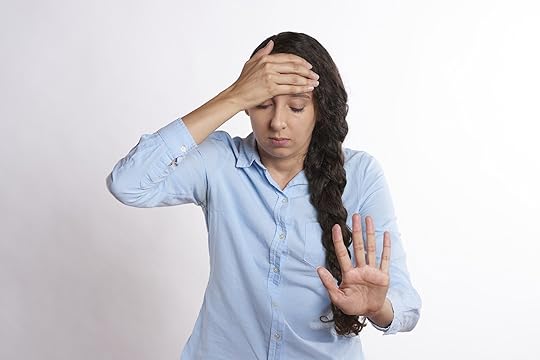 Politics can drive us crazy:
Politics can drive us crazy:In the New Year, shortly after the Capitol Insurrection in the United States, I wrote an article about how political polarization is terrible for our mental health. I had also written just prior to that about how the politics of division are driving people crazy.
These days, with the fourth wave of COVID upon us and given the way that this public health crisis has turned into a political circus, I thought I’d add another update on the negative impact of politics on our mental health.
COVID has become entrenched as part of our “new normal,” adding yet another stressor to our already over-loaded lives. Unfortunately, the pandemic has become so politicized that if the stakes weren’t life-and-death, it would be laughable. Instead, the politicization of COVID has been wreaking havoc on our physical and mental well-being.
Divisive politics can make us stressed:With COVID, people seem to be separating into two camps: those who follow the science and those who listen to the conspiracy theories. The latter group can be extremely vocal in espousing their ideology, and their reactions to many of the public health guidelines can be so irrational and even aggressive that it can become quite frightening.
I just read a story about three angry fathers bursting into a school in Arizona carrying plastic hand cuffs, in protest against the mask requirements for the children. These men threatened to make a “citizen’s arrest,” against the female principal of the school, which actually seemed more like a kidnapping attempt and which so far, has resulted in the arrest of one of the men.
I’m sure the principal was traumatized by this experience and most likely, other educators are that much more anxious nowadays, fearing similar attacks at their schools.
People have started harassing businesses that comply with the public health guidelines, creating an atmosphere of intimidation and fear. After over eighteen months of struggling to keep their businesses afloat, business owners, employees and customers can only become more stressed by this distressing degree of persecution.
Even in our personal lives, politics have become that much more stressful in the context of COVID. If a loved one is an anti-vaxxer and we’ve had our two shots, it could be grounds for bitter disagreements, misunderstandings and hurt feelings – all detrimental to our mental well-being.
People become stressed when things are unstable:People crave stability and order. We feel most comfortable when the rules are followed. Chaos is frightening. We feel overwhelmed and out of control.
COVID has already introduced so much uncertainty into our lives, and the intensely politicized way that people are dealing with the pandemic is only making things worse. Anti-maskers and anti-vaxxers are creating tremendous stress for those who choose to follow the public health guidelines.
People are becoming increasingly fearful that those who disagree with them will resort to violence – and for good reason. Someone I know was going to have a drink at a bar but they turned away when an angry mob of protesters was blocking the entrance, shouting terrible threats, merely because of the bar’s pro-vaccine policy.
We have a Canadian election coming up in a few weeks, adding even more stress to our lives during the fourth wave of a global pandemic.
In this highly politicized time, when politicians grabbing power seems more important than their mandate to save lives, will our apathy and disillusionment over politics make us opt out of the process? And will that result in a party being elected by default — only to dial back the COVID precautions in as a way to entrench their position?
That would mean rising numbers of seriously ill people, over-loaded ICU’s, burn-out on the part of my medical colleagues and worst of all, a whole lot more people dying. I’m getting scared.
We get sad, mad and scared when we feel powerless:Anxiety, anger and depression often are linked to a sense of disempowerment, so it’s important to take action whenever we can. If we do take action – by casting our vote in the upcoming Canadian election – we can make changes in the political system, and just as importantly, we can go a long way toward protecting and nurturing our mental well-being.
One of the symptoms of depression is that we stop caring. We become disillusioned, apathetic and unmotivated. Unfortunately, our depression prevents us from taking the kind of action that could make us feel better and do better.
We need to fight our tendency toward indifference and inaction and make our voices heard. When we feel more empowered, our depression abates and our lives improve.
So, what can you do?Here is my list of five things that will help your mental health when living through these charged political times:
Spend less time focusing on the news and shift your attention to more positive activities.Prioritize your mental wellness with meditation, creative pursuits, and being in nature.Talk to a loved one or to a professional when your stress becomes unmanageable.Practice healthy skepticism and only believe what is factual and well-researched. Trust science and proven fact over opinion and conspiracy theory.Speak out when you’re upset or frustrated, through blogging or social activism, and vote in the upcoming Canadian election. You can do so in person, by mail, in the advance polls or on election day. With so many options, you have no excuse to remain silent.
If you take care of your mental well-being, you’ll be able to make much better choices for yourself and your loved ones in these very challenging times.
——
Sign up for my free biweekly wellness newsletter here for my series on Moving into Autumn with Good Self-Care, where you’ll learn simple tips for taking the best care of yourself and your loved ones this winter season.
And tune in to my ongoing YouTube video series on Coping With Covid.
As the Canadian Election Approaches, Politics Plus Covid is Stressing Us to the Max
 Politics can drive us crazy:
Politics can drive us crazy:In the New Year, shortly after the Capitol Insurrection in the United States, I wrote an article about how political polarization is terrible for our mental health. I had also written just prior to that about how the politics of division are driving people crazy.
These days, with the fourth wave of COVID upon us and given the way that this public health crisis has turned into a political circus, I thought I’d add another update on the negative impact of politics on our mental health.
COVID has become entrenched as part of our “new normal,” adding yet another stressor to our already over-loaded lives. Unfortunately, the pandemic has become so politicized that if the stakes weren’t life-and-death, it would be laughable. Instead, the politicization of COVID has been wreaking havoc on our physical and mental well-being.
Divisive politics can make us stressed:With COVID, people seem to be separating into two camps: those who follow the science and those who listen to the conspiracy theories. The latter group can be extremely vocal in espousing their ideology, and their reactions to many of the public health guidelines can be so irrational and even aggressive that it can become quite frightening.
I just read a story about three angry fathers bursting into a school in Arizona carrying plastic hand cuffs, in protest against the mask requirements for the children. These men threatened to make a “citizen’s arrest,” against the female principal of the school, which actually seemed more like a kidnapping attempt and which so far, has resulted in the arrest of one of the men.
I’m sure the principal was traumatized by this experience and most likely, other educators are that much more anxious nowadays, fearing similar attacks at their schools.
People have started harassing businesses that comply with the public health guidelines, creating an atmosphere of intimidation and fear. After over eighteen months of struggling to keep their businesses afloat, business owners, employees and customers can only become more stressed by this distressing degree of persecution.
Even in our personal lives, politics have become that much more stressful in the context of COVID. If a loved one is an anti-vaxxer and we’ve had our two shots, it could be grounds for bitter disagreements, misunderstandings and hurt feelings – all detrimental to our mental well-being.
People become stressed when things are unstable:People crave stability and order. We feel most comfortable when the rules are followed. Chaos is frightening. We feel overwhelmed and out of control.
COVID has already introduced so much uncertainty into our lives, and the intensely politicized way that people are dealing with the pandemic is only making things worse. Anti-maskers and anti-vaxxers are creating tremendous stress for those who choose to follow the public health guidelines.
People are becoming increasingly fearful that those who disagree with them will resort to violence – and for good reason. Someone I know was going to have a drink at a bar but they turned away when an angry mob of protesters was blocking the entrance, shouting terrible threats, merely because of the bar’s pro-vaccine policy.
We have a Canadian election coming up in a few weeks, adding even more stress to our lives during the fourth wave of a global pandemic.
In this highly politicized time, when politicians grabbing power seems more important than their mandate to save lives, will our apathy and disillusionment over politics make us opt out of the process? And will that result in a party being elected by default — only to dial back the COVID precautions in as a way to entrench their position?
That would mean rising numbers of seriously ill people, over-loaded ICU’s, burn-out on the part of my medical colleagues and worst of all, a whole lot more people dying. I’m getting scared.
We get sad, mad and scared when we feel powerless:Anxiety, anger and depression often are linked to a sense of disempowerment, so it’s important to take action whenever we can. If we do take action – by casting our vote in the upcoming Canadian election – we can make changes in the political system, and just as importantly, we can go a long way toward protecting and nurturing our mental well-being.
One of the symptoms of depression is that we stop caring. We become disillusioned, apathetic and unmotivated. Unfortunately, our depression prevents us from taking the kind of action that could make us feel better and do better.
We need to fight our tendency toward indifference and inaction and make our voices heard. When we feel more empowered, our depression abates and our lives improve.
So, what can you do?Here is my list of five things that will help your mental health when living through these charged political times:
Spend less time focusing on the news and shift your attention to more positive activities.Prioritize your mental wellness with meditation, creative pursuits, and being in nature.Talk to a loved one or to a professional when your stress becomes unmanageable.Practice healthy skepticism and only believe what is factual and well-researched. Trust science and proven fact over opinion and conspiracy theory.Speak out when you’re upset or frustrated, through blogging or social activism, and vote in the upcoming Canadian election. You can do so in person, by mail, in the advance polls or on election day. With so many options, you have no excuse to remain silent.
If you take care of your mental well-being, you’ll be able to make much better choices for yourself and your loved ones in these very challenging times.
——
Sign up for my free biweekly wellness newsletter here for my series on Moving into Autumn with Good Self-Care, where you’ll learn simple tips for taking the best care of yourself and your loved ones this winter season.
And tune in to my ongoing YouTube video series on Coping With Covid.
Marcia Sirota's Blog
- Marcia Sirota's profile
- 1 follower





